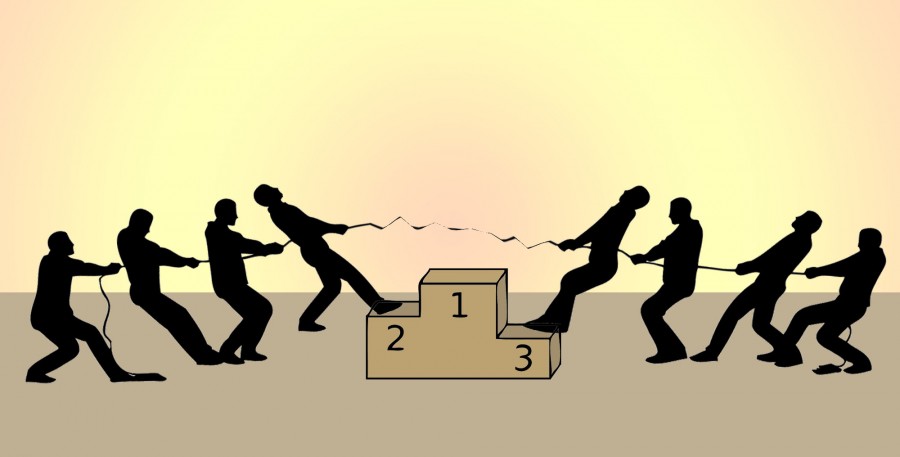CLASS RANK SUCKS: Dropping class rank improves students’ lives
He gets perfect grades. She aces tests without studying at all. He doesn’t need to try. She looks at B’s like they are failing grades. They are the top 10 in the class. They are the future Stanford and Harvard graduates. Their lives are easy. Right?
No. Of course not. They do hours upon hours of homework every night. They are taking four AP classes and four more honors classes just for the credits. They need straight A’s in these classes or they can kiss valedictorian goodbye. They can’t do things like sports because they wouldn’t have time to do homework. And forget about show choir, band, art and theatre. These classes are only worth about half the credits of AP classes.
Rank is calculated by cubing the mark point average, and multiplying it by the total mark points of a student. This number is considered by some to be the big contest in high school life. There’s prestige in being the number one in their class. Unfortunately, nobody remembers the number two. It is the most important, stressful and difficult part of these students’ high school careers. Which is why Westside should drop class rank.
Why do said students go through so much pain and stress? Is there even a point? More and more people are beginning to realize that there is not, like the ones on the Millard School Board who voted to completely remove class rank. The competition for No. 1 is over. No more struggling to take more classes than the average student. No more memorizing all night to outwit the photographic memory of the current valedictorian.
Why hasn’t Westside dropped class rank too? One common argument is that colleges would not have a way to determine which students are the best. Another is that students would no longer have a way to promote themselves and gain entrance to their university of choice.
These arguments seem logical, but can be refuted. In reality, colleges do not look at class rank as much as people think. According to guidance counselor Theresa Henson, they pay attention to GPA, ACT/SAT scores, application essays, letters of recommendation and rigor of curriculum. Class rank is not as important. If a student wants to improve their standings, they can improve themselves by working on their GPA. I can’t see any good reason the keep class rank.
Although there are no reasons for, there are plenty of reasons to drop class rank. It is stressful for most students, not just the top 15 or 20. The top 50 percent of a school like Westside, contains 228 students in the class of 2017. Whereas the top half of a graduating class in small-town western Nebraska could contain maybe 25 students. That is a very big difference. To be able to say you are in the top 25 is a very proud thing to boast, however inaccurate. Class rank does little to account for class size. This gives a disproportionate advantage to students from different schools. Which is another reason it is unfair and should be removed.
Class rank uses percentages and calculations. These do not describe a person. And that is what every high schooler is, a person. Class rank is a number, and numbers, people are not. Dropping class rank would be very healthy for the learning environment of the students. Millard did it. Westside should, too. It won’t ruin a graduate’s odds of being accepted, however, it just might increase them.
Your donation will support the student journalists of Omaha Westside High School. Your contribution will allow us to purchase equipment and cover our annual website hosting costs.












